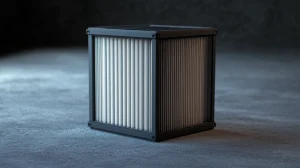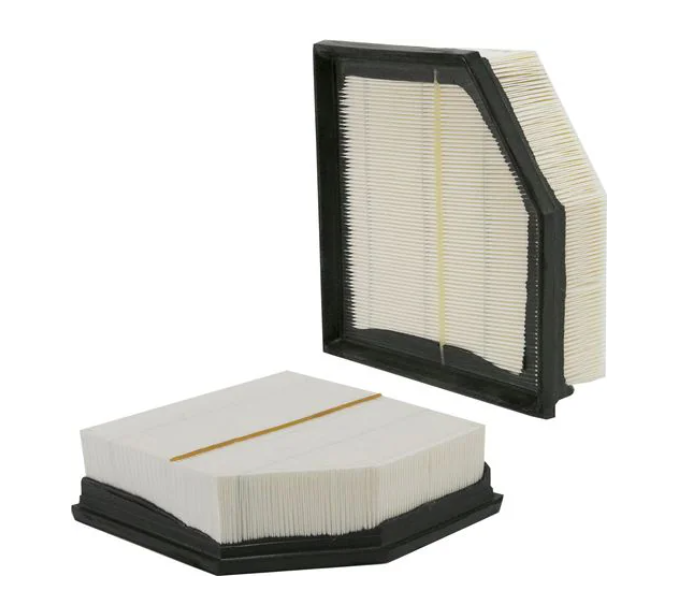
MicroGard Panel Air Filter – MGA10008
- Air Filter; Panel; Microgard Air Filters provide good engine protection for everyday normal driving conditions throughout a traditional air filter change interval. These filters are designed to match the OE specifications in media area. Air filter laboratory tests per ISO 5011: 97.5 percent minimum efficiency (Based on Microgard part number: MGA42484).
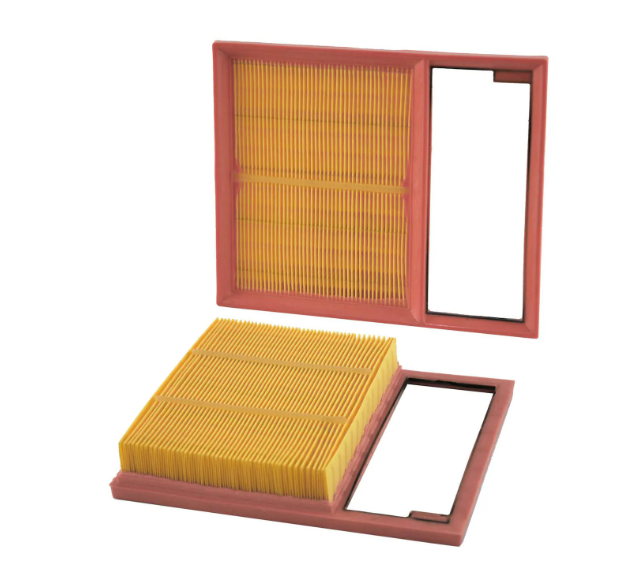
MicroGard Panel Air Filter – MGA10036
- Air Filter; Panel; Microgard Air Filters provide good engine protection for everyday normal driving conditions throughout a traditional air filter change interval. These filters are designed to match the OE specifications in media area. Air filter laboratory tests per ISO 5011: 97.5 percent minimum efficiency (Based on Microgard part number: MGA42484).
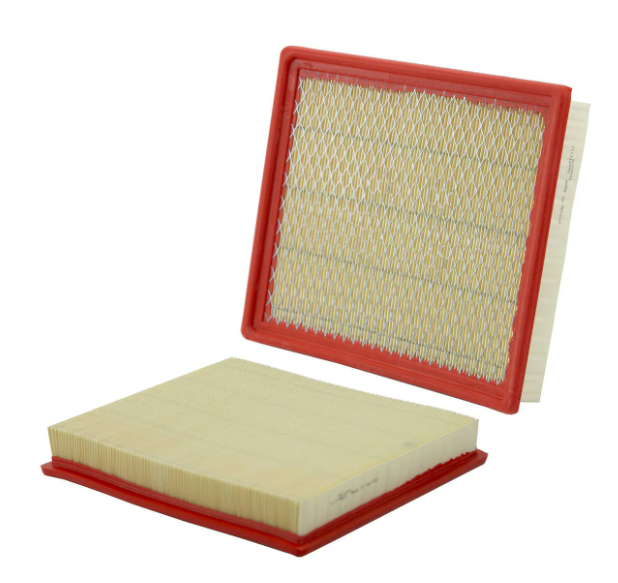
MicroGard Panel Air Filter – MGA10039
- Air Filter; Panel; Microgard Air Filters provide good engine protection for everyday normal driving conditions throughout a traditional air filter change interval. These filters are designed to match the OE specifications in media area. Air filter laboratory tests per ISO 5011: 97.5 percent minimum efficiency (Based on Microgard part number: MGA42484).
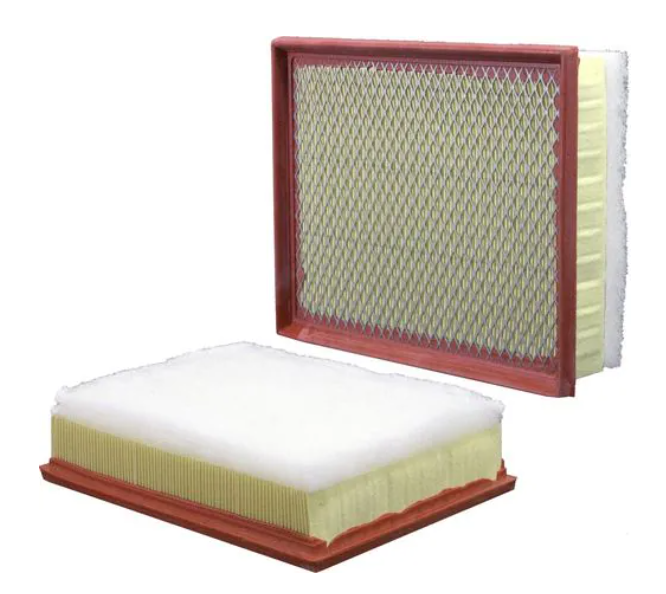
MicroGard Panel Air Filter – MGA10048
- Air Filter; Panel; Microgard Air Filters provide good engine protection for everyday normal driving conditions throughout a traditional air filter change interval. These filters are designed to match the OE specifications in media area. Air filter laboratory tests per ISO 5011: 97.5 percent minimum efficiency (Based on Microgard part number: MGA42484).
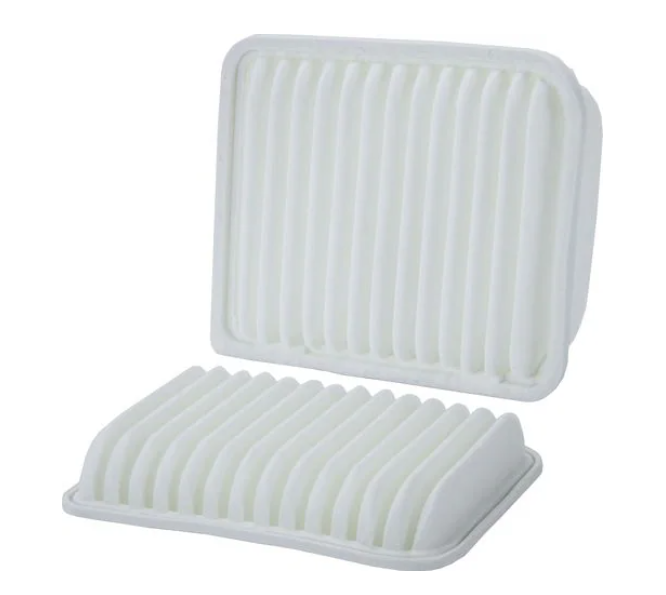
MicroGard Panel Air Filter – MGA10058
- Air Filter; Panel; Microgard Air Filters provide good engine protection for everyday normal driving conditions throughout a traditional air filter change interval. These filters are designed to match the OE specifications in media area. Air filter laboratory tests per ISO 5011: 97.5 percent minimum efficiency (Based on Microgard part number: MGA42484).
Everything You Need to Know Before Purchasing a Microgard Air Filter
As a car owner, keeping your engine running smoothly is a top priority. One of the best ways to protect your engine is by using a high-quality air filter, like those made by Microgard.
Microgard air filters are specially designed to trap harmful particulate matter, preventing dirt, dust and debris from entering your engine. With better filtering capabilities than standard air filters, Microgard helps improve engine performance and longevity.
Before purchasing a Microgard air filter, there are some key factors to consider. This comprehensive buying guide will provide an in-depth look at Microgard air filters to help you choose the right one for your vehicle.
What is a Microgard Air Filter?
A Microgard air filter is a high-performance, high-efficiency air filter specifically engineered to protect engines in demanding conditions. Using multiple layers of filter media, Microgard air filters are able to trap more contaminants than standard filters.
The filter media in a Microgard air filter consists of different layers:
- A prefilter layer catches larger particulates like leaves and bugs.
- A cotton gauze layer improves filtering efficiency.
- Microglass fiber layers trap tiny, microscopic contaminants.
- A final layer of cotton gauze provides extra protection.
With this multi-layer filtration system, Microgard air filters can stop particles as small as 3-5 microns. For comparison, a human hair is about 100 microns thick! By removing these tiny particles, Microgard filters help engines last longer.
How Does a Microgard Air Filter Work?
Microgard air filters utilize a combination of different filter medias to achieve maximum contaminant removal. As air passes through, each layer captures different sized particles:
- The prefilter catches large debris like leaves, insects, and fibers.
- The cotton gauze layers filter out dirt, dust, pollen, and sand.
- The microglass fiber media traps microscopic soot, bacteria, and carbon particles.
The layers work together to block even the smallest particles from entering the engine. The multi-stage filtration allows efficient air flow while maintaining high filtration standards.
Microgard filters also use an electrostatic charge to attract and trap more contaminants. By carrying a static charge, the filter media can better grab particles like smoke and exhaust fumes. This electrostatic enhancement further improves the Microgard’s filtering capabilities.
Where Can I Buy a Microgard Air Filter?
Microgard air filters are sold at many major auto parts stores, including:
- Advance Auto Parts
- AutoZone
- Napa Auto Parts
- O’Reilly Auto Parts
- Pep Boys
Most of these retailers have Microgard filters available on their websites, so you can easily find the right one for your vehicle with some simple search filters. Free store pickup is also offered.
Of course, Amazon carries a wide selection of Microgard air filters as well. With fast Prime shipping, Amazon is incredibly convenient if you need your filter quickly. Many options also qualify for free returns just in case you order the wrong one.
You can also purchase directly from Microgard’s website or other online retailers like Filterheads and CARiD. Buying directly from the manufacturer ensures you receive an authentic Microgard filter.
How Often Should I Replace a Microgard Air Filter?
Microgard recommends replacing air filters every 12,000 miles or 12 months, whichever comes first. However, environment and driving conditions impact filter life, so you may need to replace yours more frequently.
Here are some signs your Microgard air filter needs to be changed:
- Decreased engine performance
- Increased exhaust emissions
- The engine sounds louder than usual
- Reduced acceleration and power
- The filter appears very dirty upon inspection
Microgard air filters are designed to last. But over time, trapped particulates will restrict air flow. Replacing them at the recommended interval ensures optimal engine protection.
What Are the Benefits of a Microgard Air Filter?
Microgard air filters offer many advantages over standard filters:
- Better engine protection – By removing more contaminants, Microgard filters help prevent engine wear and tear. This extends the engine’s lifespan.
- Improved performance – Keeping harmful particles out of the combustion chamber allows the engine to run smoother and more efficiently. You’ll notice better throttle response and acceleration.
- Enhanced fuel economy – Reduced friction and resistance in the engine results in better gas mileage. Microgard filters can improve MPG by up to 10%.
- Advanced filtration – With the ability to catch particles down to 3-5 microns, Microgard filters offer superior contaminant removal over standard air filters.
- Long-lasting – The multilayer MicroGlass media can trap more dirt and debris without affecting air flow. This increased capacity allows longer service life – up to 50% longer than comparable filters.
Is a Microgard Air Filter Easy to Install?
Microgard air filters feature a straightforward, drop-in design for quick, simple installation. Just follow these basic steps:
- Locate your existing air filter housing. It’s normally found in the engine bay.
- Release the clips or screws holding the housing cover in place.
- Remove the old, dirty filter and clean out any debris inside the housing.
- Insert the new Microgard filter into the housing, making sure it fits snugly in place.
- Replace the housing cover and secure it back in place with the clips or screws.
And that’s it! The entire process only takes a few minutes even for beginners. No tools beyond a screwdriver are required. Just be careful when handling the old filter – you don’t want any dirt or oil getting in your air intake.
Does a Microgard Air Filter Fit My Vehicle?
With thousands of filter options, Microgard has air filters specifically designed to fit nearly every make and model vehicle.
To find the right one:
- Look up your vehicle’s year, make, and model.
- Check the owner’s manual for filter size and specifications.
- Use the part finder on Microgard’s website – just enter your vehicle info.
- You can also take your original filter into the parts store for comparison.
Microgard filters are available for all common vehicle types including sedans, trucks, SUVs, and more. Custom shapes and sizes are made to perfectly fit the filter housing for your car. Purchasing the filter made for your vehicle ensures optimal performance.
How Do I Install a Microgard Air Filter?
Putting in a new Microgard air filter takes just a few simple steps. Here is a step-by-step installation guide:
- Open your hood and locate the air filter housing. It is typically a plastic or metal box connected to the engine air intake.
- Release the clips or screws holding the housing cover in place. Sometimes this only requires loosening clamps or toggles by hand.
- Carefully remove the old air filter and clean out any debris inside the housing. Make sure no dirt drops into the air intake.
- Check the new Microgard filter for any defects or damage. Verify it is the correct size and shape.
- Insert the Microgard filter into the housing, taking care not to bend or twist it. Make sure it fits securely.
- Replace the housing cover and fasten it back in place with the retaining clips or screws. Double check the cover is properly aligned and closed.
- That’s it! You may need to consult your owner’s manual for model-specific details. Some vehicles also require resetting sensors after a filter change.
With the right Microgard filter, installation only takes a few minutes. Just be sure to discharge any static buildup from your body before handling the filter.
What Makes Microgard Air Filters Different from Others?
Microgard filters stand out from standard air filters in a few key ways:
- Advanced Media – Microgard uses a patented layered filter media with MicroGlass fibers and electrostatic filtration properties. This allows for higher efficiency and capacity.
- Superior Construction – Microgard air filters feature sturdy side molding and durable end caps to prevent air bypass. The reinforced structure provides a tight seal.
- Multi-Pass Testing – Extensive testing ensures uniform filtration across the entire filter. Microgard filters must pass multi-pass ISO tests.
- Contaminant Removal – Due to the advanced media and construction, Microgard filters stop more dirt, dust, pollen, and other contaminants from entering the engine.
- Longer Life – With greater structural integrity and dirt-holding ability, Microgard filters maintain adequate air flow longer before needing replacement.
When compared to cheap, generic air filters, Microgard easily outperforms in both filtration efficiency and service life. You get what you pay for with air filters!
Are Microgard Air Filters Eco-Friendly?
Microgard air filters are environmentally-friendly for a few reasons:
- The filter media is incinerated rather than landfilled after use. This reduces waste volume.
- They are constructed using recycled resins and durable materials. Less material is consumed per filter.
- By protecting your engine, Microgard filters improve fuel efficiency and decrease emissions. This benefits the environment.
- The MicroGlass fibers are non-toxic and produced in an eco-conscious manner. The material biodegrades naturally over time.
- Microgard filters have a longer service life, so you consume fewer filters over your vehicle’s lifetime.
While no product is 100% green, Microgard filters aim to be sustainable both in construction and performance. So you can feel good about the small ways they help protect the planet with each use.
How Effective is a Microgard Air Filter at Removing Dust?
In dust removal tests, Microgard air filters capture over 99% of dust particulates down to 3-5 microns.
The MicroGlass media has a huge dust holding capacity thanks to its electrostatic properties, layered construction, and extra fine fiber structure. Microgard filters can efficiently remove household dust, wood dust, drywall dust, and other common airborne contaminants.
According to ISO 5011 testing, Microgard air filters maintain 95% or better filtration efficiency for up to 28 grams of dust loading. Many standard filters struggle after only 15 grams of dust capacity.
With multi-pass testing methods, Microgard ensures uniform filtration across the entire filter surface area. There are no weak spots for dust to sneak through. So you can trust Microgard filters to keep dust out of your engine.
Can a Microgard Air Filter Improve Engine Performance?
By removing more dirt and debris, Microgard air filters allow engine components to operate more efficiently for improved performance. Here are some of the performance benefits you can expect:
- Better Throttle Response – With less restriction in the air intake, your engine reacts more quickly when pressing the accelerator.
- Increased Horsepower – Cleaner combustion results in a 3-10 hp gain since the engine can operate at peak performance.
- Enhanced Acceleration – Reduced intake resistance enables your engine to reach optimal rpm faster.
- Improved Fuel Economy – Less friction in your engine means it requires less effort (fuel) to generate power. Expect 1-2 mpg improvement.
- Longer Engine Life – Keeping abrasive particles from entering the cylinders and valves reduces wear and tear. This extends the engine’s lifespan.
So if your vehicle seems sluggish or lacks power, a new Microgard filter can provide a noticeable boost in acceleration and response. Your engine will thank you!
What Materials Are Used in a Microgard Air Filter?
Microgard air filters utilize an engineered, multi-layer filtration media:
- The prefilter is made from durable synthetic fibers that trap large debris.
- Layers of cotton gauze filter out dirt, dust, and other contaminants.
- Microglass fibers capture the smallest soot and carbon particles down to 3-5 microns.
- Adhesive bonds the media layers together while allowing uniform air flow.
The media pack is then housed in a sturdy frame using structural resins. Microgard filters contain:
- 50% recycled plastic in the end caps and housing
- 20% post-consumer recycled plastics in the filter body
- 30% post-industrial recycled plastic in the frame
By leveraging recycled materials, Microgard maintains durability and performance while reducing environmental impact. The filters contain no hazardous or toxic substances.
How Do I Know If My Microgard Air Filter Needs Replacing?
Watch for these signs that indicate your Microgard air filter needs to be changed:
- Your engine sounds louder or rattles at idle
- Acceleration seems sluggish or reduced
- The filter has darkened significantly or turned grey
- You notice increased exhaust emissions
- Check engine light illuminates for low air flow
- Mileage has exceeded 12,000 since last change
- Unusual engine smell or musty air from the vents
You can also remove the filter and hold it up to check for light. If light doesn’t pass through, the filter is likely clogged with dirt. Avoid tapping or hitting it to knock off dust.
Adhering to the 12,000 mile or 12 month replacement interval ensures you get the full life out of your Microgard air filter. But monitor these signals just in case it gets prematurely overloaded with contaminants.
Are There Any Discounts on Microgard Air Filters?
As a premium product, Microgard air filters have a higher initial cost. But you can find ways to save on MicroGard air filters with some smart shopping:
- Check retailer sites for any current sales, coupons, or rebates on Microgard filters. Sign up for email alerts about promotions.
- Buy in bulk online to get volume discounts when purchasing multiple filters at once.
- Take advantage of free shipping offers from sellers to offset costs.
- Join rewards programs at stores where you regularly buy filters to earn points or credits.
- Buy a multi-pack or combo kit that comes with a small discount compared buying individually.
- Watch for seasonal sales around peak maintenance times like spring or fall auto sales.
- Purchase a reusable washable pre-filter to go over the MicroGard. This extends the filter’s life.
While Microgard filters may cost more upfront, remember you get what you pay for in terms of engine protection and longevity!
What Are Customer Reviews for Microgard Air Filters?
With decades of experience manufacturing filters, Microgard has earned overwhelmingly positive reviews for their air filters. Here’s what actual customers have to say:
- “Changed my air filter to MicroGard and immediately noticed smoother acceleration and improved throttle response.”
- “Microgard filter was a perfect direct replacement for my OE filter. Took 2 minutes to install in my truck.”
- “Used Microgards for years now. Still get 50-60k miles between changes. My trucks run so much better with them.”
- “I do a lot of dirt road driving. A Microgard filter keeps dust out and has saved my engine from wear a few times now.”
- “Gas mileage improved after installing a new Microgard air filter. Highly recommend them if you want to protect your engine.”
- “Effectively filters out pollen so I don’t have to blast the A/C. Made a huge difference for my allergies.”
Based on thousands of verified reviews, drivers report better performance, improved filtration, and extended engine life using Microgard air filters. They provide superior protection over standard filters.
Do Microgard Air Filters Improve Fuel Efficiency?
By minimizing engine friction and resistance, Microgard air filters can boost your vehicle’s MPG by 1-2 miles per gallon on average.
This fuel economy improvement results from:
- Decreased intake restriction so your engine doesn’t have to work as hard
- Smoother air flow into the combustion chamber
- Reduced emissions from more complete fuel combustion
- Less engine wear from contaminant damage
The advanced MicroGlass media maintains airflow much longer than conventional filters as it traps dirt. This allows for consistent performance and fuel efficiency throughout the filter’s lifespan.
While 1-2 mpg may not seem significant, it can add up to noticeable fuel savings over time. For just a small upfront investment, a Microgard filter pays for itself through improved fuel economy.
Are Microgard Air Filters Available Online?
Microgard air filters are readily available through all major online auto parts retailers. Here are some top ecommerce sites that stock Microgard filters:
- Amazon – Extensive inventory with free Prime shipping on most filters. Can search by vehicle make/model.
- AutoZone – Large selection of Microgard filters with free next day delivery on $35+ orders. Easy online lookup.
- NAPA – Enter year, make, model to find the right MicroGard filter for your car. Qualify for free shipping.
- O’Reilly – Utilize convenient online part finder to identify the correct MicroGard filter. Filters ship free over $35.
- Walmart – Great prices on Microgard filters with fast shipping from Walmart.com. Free in-store pickup.
- eBay – New and used Microgard filters available auction-style or buy it now format.
Ordering online is fast and convenient. Just be sure to have your vehicle information handy to locate the proper Microgard air filter. Most sites also allow you to select in-store pickup.
How Do I Maintain a Microgard Air Filter?
Microgard air filters are designed to be maintenance-free with no cleaning required. However, you can maximize filter life between changes with proper practices:
- Ensure the filter housing has a tight, secure seal to avoid unfiltered air.
- Change the filter at least every 12,000 miles or 12 months.
- Use a pre-filter over the MicroGard to catch larger debris.
- Avoid exposing the filter to any oil, cleaners, or liquids.
- Check for signs of damage like bent pleats before installing.
- Do not try tapping or blowing dust off the filter. Replace when dirty.
- Follow the installation instructions carefully for proper fit.
By not over-handling the filter and protecting it from leaks, you’ll get the longest possible service life from MicroGard air filters. They require no maintenance themselves.
What is the Lifespan of a Microgard Air Filter?
When installed correctly, Microgard air filters typically last 12,000-15,000 miles or 12-18 months before needing replacement.
Factors impacting lifespan include:
- Your driving environment – frequent off-roading shortens life due to dust exposure. Dry environments are better.
- Vehicle usage – more mileage means more contaminant exposure, requiring earlier change intervals.
- Engine and filter housing condition – a perfectly sealing housing ensures maximal use.
- Pre-filter usage – prefilters capture larger particles and extend the main filter’s lifespan.
- Driving habits – aggressive acceleration can prematurely load the filter with dirt.
- Climate and weather – rainy or snowy conditions clog filters faster.
Following MicroGard’s recommendations for installation, replacement intervals, and pre-filter usage will ensure you achieve the expected 12-15k mile lifespan. Proper maintenance keeps your engine running cleanly!


